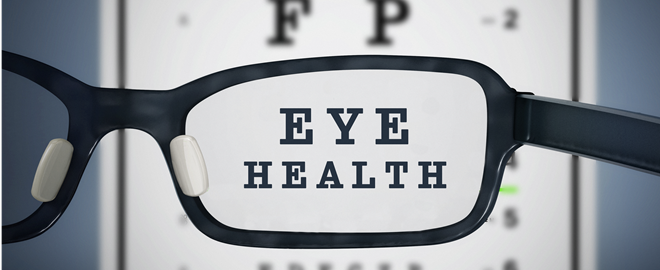Vision Facts: What’s the purpose of a dilated eye exam?
Posted on August 3, 2023 in Healthy You

When you visit an eye specialist for a routine vision exam, they may recommend an eye dilation test. An eye dilation test allows your doctor a clearer look at some important parts of your eye, including the retina (located at the back of your eyeball) and the optic nerve (which allows your eyes to communicate with your brain). An eye dilation test allows your eye doctor to identify potentially serious eye diseases early, when they can be more easily treated.
Benefits of having an eye dilation test
An eye dilation test is the gold standard for the early detection of eye diseases, such as glaucoma, macular degeneration and diabetic retinopathy. Many of your eye structures cannot be thoroughly examined when your eyes are not fully dilated, so having an eye dilation test ensures that you are receiving a truly comprehensive eye exam and gives you the peace of mind that your doctor has the full picture of your eye health.
What happens during an eye dilation test
To do an eye dilation test, your eye doctor uses special eye drops to widen your pupils. The pupil is the dark, round opening in the center of the iris (colored area of your eye). It takes 15-30 minutes for your eyes to become fully dilated after receiving the eye drops. Your vision may change as a result of pupil dilation — blurry vision and sensitivity to light are common side effects.
Once your pupils are dilated, your eye care provider will use special instruments to examine the internal structures of your eyes, looking for any signs of possible damage or disease.
Your pupils will stay larger for about 4-6 hours before going back to normal. While they’re dilated, you will be sensitive to light and/or have blurry vision, so make sure to bring sunglasses with you to your appointment or your eye specialist may provide you a pair to take home with you.
How often should I have an eye dilation test?
Talk to your eye care specialist about the right eye exam schedule for you. In general, the National Eye Institute recommends the following groups have an eye dilation test each year:
- Adults age 60 or older
- African Americans age 40 or older
- Anyone with a family history of glaucoma
- People with diabetes or high blood pressure are at an increased risk for certain eye diseases, so they should take special note to discuss their eye dilation test schedule with their eye specialist.1
The eye dilation test: A key piece to preventive vision care
The eye dilation test is an important part of any comprehensive eye examination. It allows eye care specialists to catch any problems early, which can prevent major complications (like vision loss). By talking to your eye doctor about how often you should have an eye dilation test, you are taking an important step in protecting your vision and achieving optimal eye health. If you need to find a new eye doctor, Delta Dental of Iowa can help. Find an in-network vision specialist near you using our online Find a Provider tool.
REFERENCE:
1. National Eye Institute
SOURCES:
National Cancer Institute
National Library of Medicine/Retina
National Library of Medicine/Optic Nerve Disorders
National Eye Institute
BrightFocus Foundation